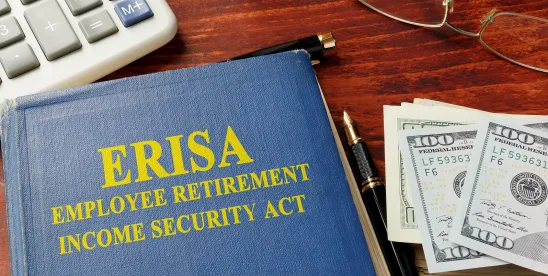The “maxim that wrongdoers may not profit from their wrongs” is having a big week at the Sixth Circuit. In two cases—one about ERISA, the other about restitution—sons betrayed their mothers for financial gain. The facts in these cases are devastating, though the legal issues are fascinating nonetheless. In short, the murderer lost, but the fraudster won.
ERISA cases, let’s face it, are not known for intrigue. Standard Insurance Co. v. Guy is the outlier. Guy was the beneficiary of his mother’s employment benefits. Guy murdered his parents and had the audacity to try to cash in on their ERISA benefits. Tennessee has a “slayer statute” that ensures “a killer cannot profit from the killer’s wrong.” ERISA, however, casts a broad preemptive net, superseding “any and all State laws … relate[d] to any employee benefit plan.” The Sixth Circuit declined to decide whether ERISA preempts Tennessee’s slayer statute—following the path of the Supreme Court in Egelhoff v. Egelhoff.
The court first checked whether the text of ERISA controlled. Guy was his mother’s named beneficiary and ERISA prescribes that “plan fiduciaries act ‘in accordance with the documents and instruments governing the plan.’” But that rule, caselaw provides, admits of exceptions, such as, for example, cases of undue influence, forgery, and fraud. The court placed the “slayer scenario” within the exception and beyond “RCRA’s text.”
How then to decide whether federal law permits a killer to profit from his malfeasance? Rather than look to state law, the court resorted instead to the federal common law. Judge Larsen explained that the “federal common-law slayer rule” provided the rule of decision. The rule is “universal and near axiomatic in the insurance context,” and thus provides the backdrop of a “firmly entrenched” rule of “common law” against which “Congress enacted ERISA.” The result: Guy cannot benefit from his slain “mother’s ERISA policies.”
In the other case, United v. O’Hara, the crime was not quite so heinous. For defrauding his mother, O’Hara received a sentence to prison plus restitution due to her estate. The mother passed, leaving O’Hara as her sole beneficiary—a fact known to the government at sentencing. After sentencing, at the government’s request, the district court amended its sentence to redirect the restitution payment to the Crime Victim’s Fund instead of the mother’s estate. But the Sixth Circuit reversed because the trial court lacked authority to modify the restitution payment.
Authority to modify a criminal sentence, Judge Nalbandian explained, must come from a statute. The provision that addresses modification of restitution, 18 U.S.C. § 3664(o), is silent on the situation at hand. Although the Mandatory Victims Restitution Act gave the trial court good reason to direct restitution away from the mother’s estate “when sentencing” O’Hara, it provided no basis to modify an existing judgment. Without express authority to alter the restitution sentence, the government invoked the “maxim that no one should benefit from his own wrongdoing.” While true, the court responded, “background principles of equity do not displace statutory text.”
In Guy, the wrongdoer rule carried the day; in O’Hara, it gave way to the sentencing law. But the two cases are readily reconcilable. ERISA aims to be comprehensive. But when a benefits case uncovers a “gap” in ERISA or a question the written law “itself does not answer,” the federal common law—what Caleb Nelson calls “background rules of general law”—supply the answer. For beneficiaries’ rights, the wrongdoer rule embodies the general law. O’Hara explained that a different default rule controls modification of a criminal sentence: it “requires an express ‘statutory basis.’” The wrongdoer rule may influence an equitable criminal sentence, but a court cannot post-hoc modify a final judgment in service of that “ancient equity maxim.”




 />i
/>i
